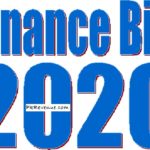ISLAMABAD: Pakistan Tuesday allowed one-time release of consignment carrying imported goods that were banned by the government on May 19, 2022 and stuck up at ports.
The country through SRO 598(I)/2022 imposed a ban on import of luxury and non-essential items in order to discourage outflow of dollars and support balance of payment.
Due to the ban about one thousand containers piled up and resulted in choking the ports. The stakeholders requested the government to allow the release of those consignments as many of the consignments were shipped before May 19, 2022 but lander after the date.
READ MORE: SBP makes permission mandatory for motor car import
In this regard the Economic Coordination Committee (ECC) of the Cabinet in its meeting held on Tuesday July 5, 2022 allowed one-time release of those consignments carrying banned items and reached on or before June 30, 2022.
Ministry of Commerce submitted a summary to seek permission for one time release of those consignments of items banned on May 19, 2022 which have reached Pakistan or would reach or their payments.
In order to resolve the hardship cases, the ECC granted one-time special permission for release of consignments stuck at the ports due to contravention framed under SRO 598(I)/2022 dated May 19, 2022, only for those consignments which have landed at ports or airports in Pakistan on or before June 30, 2022.
READ MORE: Pakistan’s import bill records over $80 bn in 2021/2022
Ministry of Commerce presented another summary on suspension of import conditions contained in import policy order 2022 with regard to import of timber/wood.
In view of hardship case of timber importers as the consignments were supplied against contracts months ago and the shipments have already arrived, the ECC decided that date of implementation of Import Policy Order 2022 regarding import of timber and wood falling under HS Codes 4401 to 4409 may be suspended till August 31, 2022 i-e for the bills of Lading issued till August 31, 2022.
The ECC also approved another summary of Ministry of Commerce to amend paragraph 3(1) of the Import policy Order 2022 to allow import of goods of Afghan origin against Pak Rupee and without the requirement of Electronic Import Form (EIF) for a period of one year, subject to the condition that Afghan exporters will provide a Certificate of Origin issued by Afghan Customs proving that the goods have originated from Afghanistan.
Federal Minister for Finance and Revenue Miftah Ismail presided over the meeting of the Economic Coordination Committee (ECC) of the Cabinet at Finance Division.
READ MORE: CMOs worry over power outages, 100% cash margin on imports
Federal Minister for Planning, Development and Special Initiatives Mr. Ahsan Iqbal, Federal Minister for Commerce Syed Naveed Qamar, Federal Minister for Power Khurram Dastgir Khan, Minister of State for Petroleum Division Musadik Masood Malik, Federal Secretaries and senior officers attended the meeting.
Ministry of National Food Security and Research submitted a summary on urgent advice relating to award of second international wheat tender 2022 opened on 1st July, 2022 for 500,000 MT.
The ECC considering the lower trend of wheat in the international market approved the lowest bid offer of M/s Cargill Int. PTE /Cargill Agro Foods Pakistan @ US$ 439.40/MT for 110,000 MT +/- 5% MOLSO to the extent of 500,000 MT.
Ministry of National Food Security & Research submitted a summary on WPF operation- purchase/ reservation of 120,000 metric tons of wheat for Afghanistan in the year 2022-23.
In view of the situation in Afghanistan and on humanitarian ground, the ECC approved the request of the WFP for purchase/ reservation of 120,000 MT of wheat from the imported wheat stock of PASSCO on the latest import price.
The amount of supplied wheat along with cost and incidentals would be charged in US dollars. The wheat will be locally grinded into wheat flour and will be supplied to Afghanistan by WFP, subject to relaxation of ban on the export of flour to the extent of the instant proposal of 120,000 MT of wheat.
READ MORE: KCCI demands release of stuck up containers
Ministry of National Food Security & Research presented another summary on the declaration of “National Disease Emergency” on account of Emergence of Lumpy Skin disease in Pakistan. The ECC after detailed discussion directed Ministry of National Food Security & Research to prepare a cost sharing plan after convening a meeting with concerned provincial secretaries and NDMA.
Ministry of Industries and Production submitted a summary on continuation of PM’s relief package, 2020, Sasta Atta initiative for KPK & expansion of Utility Stores network across Pakistan.
The ECC decided to continue subsidy on five essential commodities with direction to M/o I & P to work out feasible proposal on subsidy programme keeping in mind the financial implications.
The ECC also approved a summary submitted by Ministry of Information Technology and Telecommunication on constitution of Auction Advisory Committee to oversee spectrum auction(s) for next generation mobile services (NGMS) in Pakistan.
The Committee will be headed by Federal Minister for Finance and Revenue. The ECC also approved supplementary grant in favor of Economic Affairs Division amounting to Rs. 193.006 Billion for foreign loan repayments.






